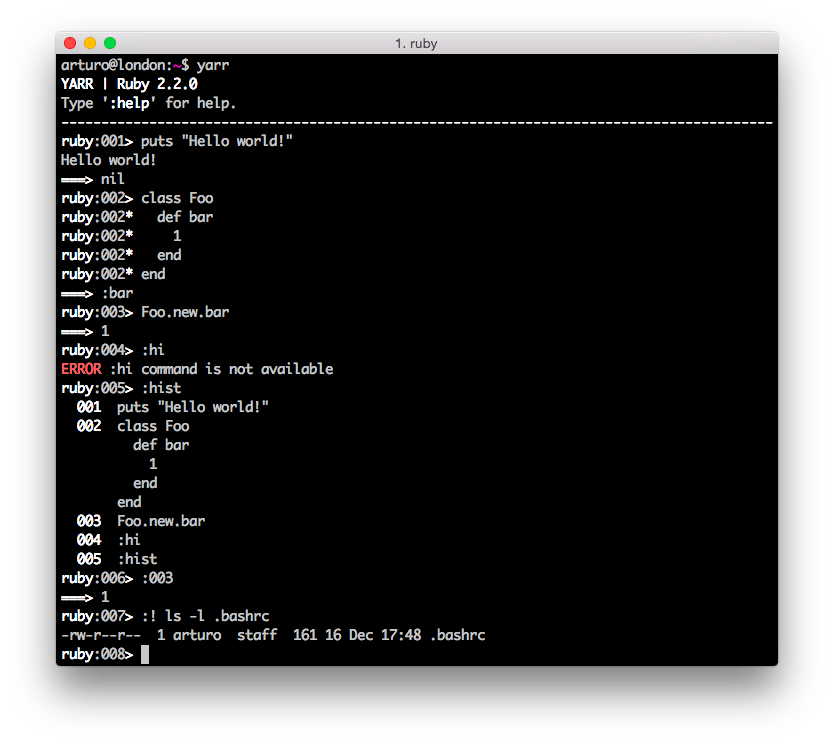YARR. Yet Another Ruby REPL
YARR (Yet Another Ruby REPL) is a Ruby REPL (it’s just a hobby, it won’t be big and professional like Pry). YARR was inspired by groovysh1, IRB2, Pry3, Bash 4 and Vim5.

A read–eval–print loop (REPL) is an interactive environment that takes user inputs, evaluates them, and returns the result to the user. A simple REPL that evaluates single valid lines of Ruby code, could be something like this:
loop do
print "ruby> "
input = gets
puts "=> #{eval(input)}"
end
I started to play with this idea and finally I built YARR that is a command-line application which allows you to easily evaluate Ruby expressions, define classes and run simple experiments.
Interesting things in the source code
This project has been a good opportunity to explore new things. I also only wanted to use the Ruby standard libraries without any external gem.
1. Method names don’t have restrictions
Method names in Ruby may contain upper-case and lower-case letters, numbers,
underscores _ and the punctuation signs !, ?, =.
A method name can’t begin with a number and the characters !, ? and = can
only appear at the end.
That’s correct if we use the usual way of defining new methods with def,
however there seems to be no restrictions on what can be used if we use
define_method [code].
define_method("!") do |args|
`#{args}`
end
2. Capture STDOUT
It’s possible to redirect the standard output or store it into a variable. I captured the STDOUT for a block of code and then restore it [code].
def capture_stdout(&block)
stdout = $stdout
$stdout = StringIO.new
block.call
ensure
$stdout = stdout
end
3. Arrange-Act-Assert pattern
Arrange-Act-Assert is a pattern for arranging and formatting code in test methods. It is very popular from the Given-When-Then style of representing tests.
I used the RSpec syntax with some private methods, so each method should group these functional sections [code]:
- Arrange all necessary preconditions and inputs (
setup). - Act on the object or method under test (
given). - Assert that the expected results have occurred (
expect).
it "executes multiline line declaration and invocation" do
setup("def foo", "1", "end")
given("foo")
expect(interpreter.call).to eq("\e[1m===>\e[0m 1")
end
February 23, 2015 | @ArturoHerrero